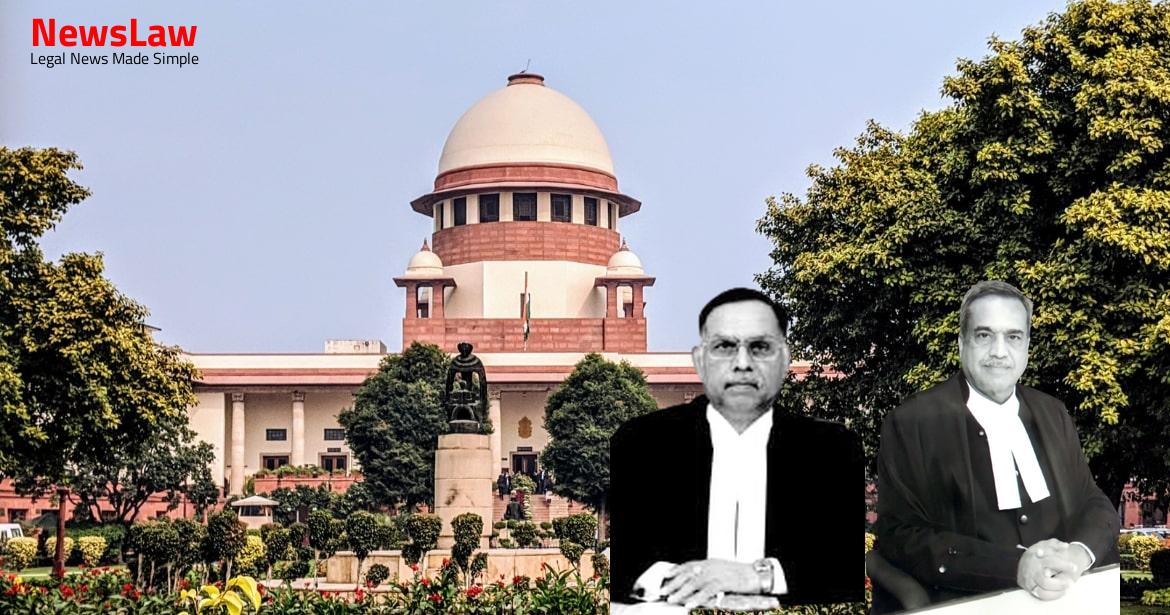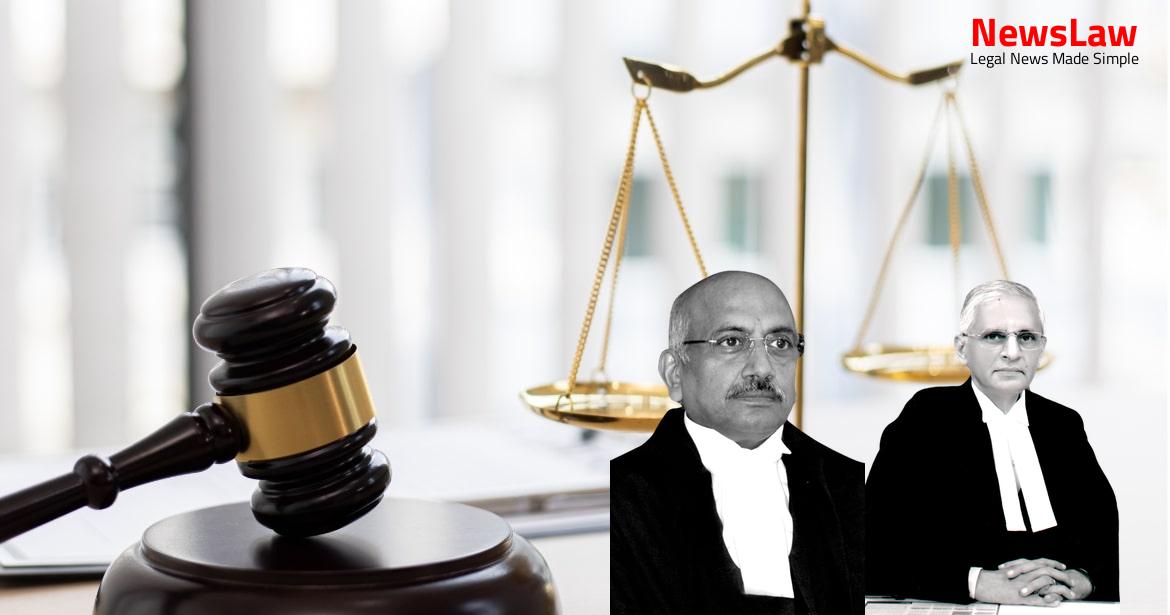The court’s in-depth legal analysis on the ongoing maintenance of prosthetic limbs in motor accident claim proceedings sheds light on the complexities involved in determining fair compensation. By examining various factors like future medical expenses, attendant charges, and the use of the multiplier system, the court navigates the intricacies of providing just compensation for claimants. Follow our blog to delve into the legal nuances of this important judgment.
Facts
- Mukesh Kumar, at 19 years of age, met with an accident on 25.8.2017 resulting in permanent disability of his right lower limb (100% disability) necessitating amputation below the knee.
- MACT assessed Rs.2 Lakhs for loss of amenities, life, and disfigurement including expenses for a prosthetic limb.
- High Court modified the MACT award on 04.11.2020, directing the provision of a good quality, suitable, and comfortable prosthetic limb to Mukesh Kumar.
- Insurer to inquire about the prosthetic limb’s working condition from Mukesh Kumar at least twice a year via email, telephone, and counsel’s contact.
Also Read: Supreme Court Judgment on Single Till Mechanism for HRAB Calculation: A Comprehensive Analysis
Issue
- Only one question arises in this appeal by the Insurance Company.
- The question is whether court directions can include ongoing maintenance of a prosthetic limb for the injured claimant.
Arguments
- Appellant argues against the methodology for assessing attendant charges
- Counsel refers to two judgments in support of their argument
- Mention of the absence of provision for passing further award once final award is passed under the said Act
- Clarification on the nature of consent given for modification of the impugned award
- In the case of children suffering disability due to a motor vehicle accident, a broad principle was laid down in Mallikarjun v. Divisional Manager, National Insurance Company Limited & Another, (2014) 14 SCC 396.
- The appropriate compensation for children with disabilities ranging from above 10% to the whole body up to 30% is Rs. 3 lakhs, up to 60% is Rs. 4 lakhs, up to 90% is Rs. 5 lakhs, and above 90% is Rs. 6 lakhs.
- This principle considers relevant factors, precedents, and the approach of various High Courts to determine compensation beyond actual treatment expenses.
Also Read: Selection and Appointment of Judicial Officers in Himachal Pradesh
Analysis
- The court has provided different scenarios for determining compensation for the claimant, including communication of quotations or estimates for prosthetic limbs to the insurance company.
- The court has emphasized the importance of considering the future eventualities and medical expenses in determining the lump sum amount to be paid.
- Different judicial pronouncements and approaches have been reviewed, with a focus on providing a lump sum amount for compensation.
- The court has discussed the use of the multiplier system for determining compensation for loss of income and attendant charges.
- Specific details and provisions have been outlined for the claimant’s prosthetic limb, attendant charges, and future wage deposits.
- The court has highlighted the need for a continuing requirement for certain compensation aspects, especially in cases of high disability and mental disability.
- The court has set aside certain directions contained in the impugned order and emphasized the need for appropriate determination of lump sum amounts based on the multiplier basis.
- The court has raised concerns about the jurisdictional boundaries regarding determination of amount in Motor Accident Claim proceedings and Public Interest Litigation.
- The judgment has been allowed with parties to bear their own costs, with specific details regarding the claimant’s age, disability percentage, and ongoing maintenance of the prosthetic limb.
- The court has addressed the issue of incontinence, incontinence, and lack of bodily function control for the claimant.
- Key decisions and orders related to compensation determination and prosthetic limb provisions have been referenced for context.
- Compensation awarded in lump sum considers multiple factors
- Multiplier system used for calculating lump sum compensation
- Separate consideration needed for special cases, like incidence of Income Tax
- Multiplier system factors in inflation rate, interest rate, claimant’s longevity, and uncertainties of life
- Claimant’s age is crucial in determining the appropriate multiplier
- Reaffirmation of the multiplier method in various cases
- Just compensation achieved through the multiplier method
- Similar approach taken in extreme injury cases affecting mental and physical abilities
- Future medical expenses must be determined based on fair guesswork considering cost increase
- Continuing mandamus not suitable for determining compensation in one go
- The principle of providing a lump sum amount for maintenance/replacement of prosthetic limb must be included
- In cases where a prosthetic limb is provided, an appropriate amount should be quantified towards maintenance
Decision
- The Insurance Company’s grievance is related to the directions in the impugned order regarding providing assistance to the appellant with two semi-skilled workers based on minimum wages for the rest of his life.
- A sum of Rs.60 Lakhs needs to be kept in an interest-bearing deposit by the Insurance Company, generating about Rs.50,000/- per month as interest to cover the expenses of the assistants.
- The directions include ensuring the Rs.50,000/- per month as interest for the appellant’s care, and also making payments for ‘attendant charges’ in the future.
- The arrears towards this assistance are to be paid by the insurer based on notified minimum wage rates for a semi-skilled worker, with interest accrued @ 9% p.a.
- The current minimum wage rate for a semi-skilled worker is approximately Rs.18,000/-.
- The appellant is also required to provide supporting documents regarding the prosthetic limb purchased and the maintenance/replacement needs.
- Rs.60 lakhs to be kept in an interest-bearing FDR by the insurer, with the earned interest credited to the appellant’s account.
- The appellant is entitled to compensation for the assistance of two semi-skilled workers based on minimum wages from the date of the accident for the rest of his life.
Case Title: HDFC ERGO GENERAL INSURANCE CO. LTD. Vs. MUKESH KUMAR (2021 INSC 373)
Case Number: C.A. No.-004576-004576 / 2021



